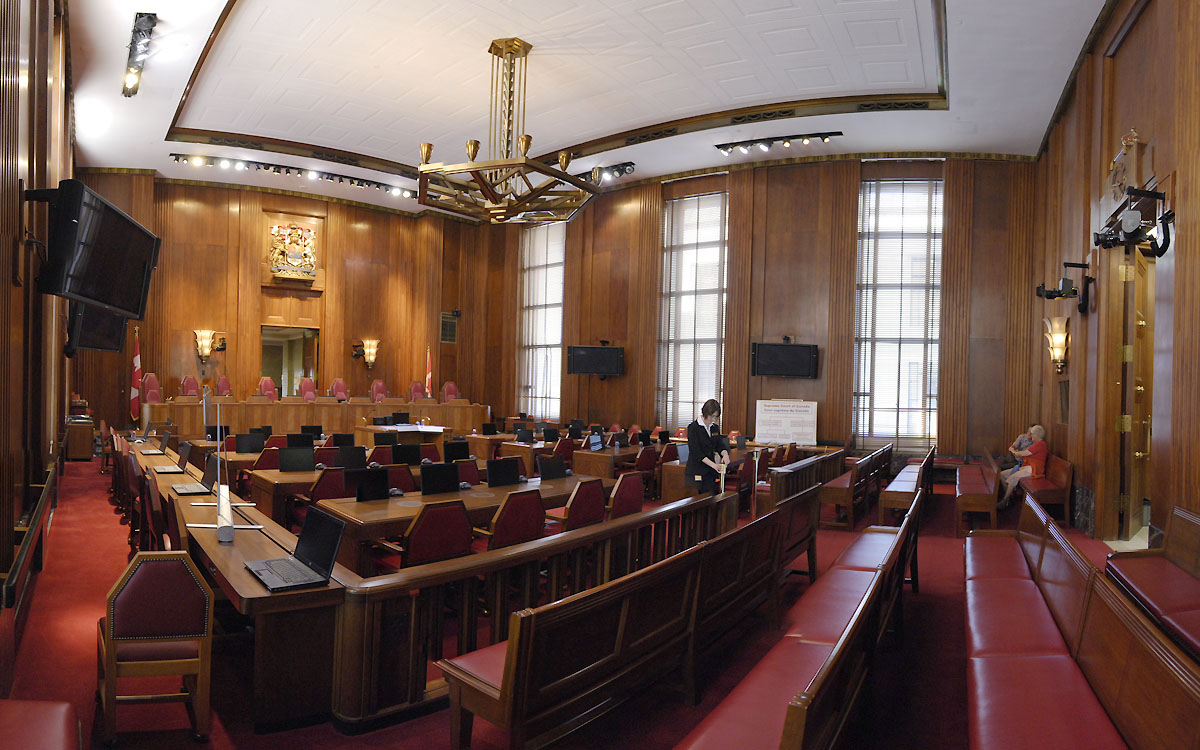
OTTAWA—Leaders of Canada’s 665,000 Metis and non-status Indians say they look forward to negotiating land claims and other benefits with the federal government now that the Supreme Court has ruled they are indeed “Indians” under the Constitution.
Thursday’s landmark ruling ends what it calls a “jurisdictional wasteland” that saw both federal and provincial governments alternately denying their constitutional responsibilities—including over matters such as health care—to close to half the country’s indigenous population.
“This case represents another chapter in the pursuit of reconciliation and redress in that relationship,” Justice Rosalie Abella wrote in the 9-0 court judgment.
The 2011 census identified 1.4 million Canadians with an “Aboriginal identity,” including 637,660 registered Indians, 213,900 non-status Indians and 451,785 people who identified as Metis.
For those non-status and Metis individuals, the country’s top court was clear: “It is the federal government to whom they can turn.”
Indigenous leaders, many in beaded buckskin, whooped and shouted in elation as they poured down the stairs into the marbled foyer of the Supreme Court after the judgment was delivered.
It resolves a legal battle that began in 1999 when the Congress of Aboriginal Peoples joined with several individuals, including Metis leader Harry Daniels, to allege discrimination because they were not considered “Indians” under the Constitution.
Daniels died in 2004, and his son Gabriel was added as a plaintiff the following year.
“I am just thinking about my dad. I’m not going to start crying,” Gabriel Daniels said after the ruling. “He would be climbing the walls ? he would be happy but he’d be focused on things to come.”
Prime Minister Justin Trudeau said the ruling has broad implications.
“We, of course, respect the Supreme Court decision and we’ll be engaging, not just on our own but with indigenous leadership to figure out what the path is forward,” he said at a news conference in London, Ont.
“I can guarantee you one thing, the path forward will be together.”
The court dismissed two questions on whether Ottawa bears a financial responsibility to Metis and non-status Indians, and whether they have a right to be consulted on their rights and needs.
Of course they do, wrote Abella: “It was already well established in Canadian law that the federal government was in a fiduciary relationship with Canada’s Aboriginal Peoples and that the federal government had a duty to consult and negotiate with them when their rights were engaged.”
The implications are far-ranging.
Daniels said the ruling could set the stage for a “provisional government on the road to a full self-governing nation within Canada, within the Constitution.”
Ron Quintal, president of the Fort McKay Metis Community in Alberta, said there may be implications for natural resource development.
“The oilsands and government have always walked over top of us and it’s been hard for us to get any kind of consultation or any type of mediation for that matter with the oil companies,” he said in an interview.
“This is going to allow us to have an actual voice where industry and government have no choice but to work with our people.”
Gerald Morin, vice-president of the Metis Nation Saskatchewan, said people should not get the impression that the Metis are suddenly tax exempt or have benefits that flow from treaties.
“What this decision means is that finally our people and our leaders will get to sit down, roll up our sleeves and negotiate with the government of Canada and the five western provinces … things like putting in place a Metis nation land claims process.”
The historical echoes go all the way back to the Northwest Resistance that resulted in the hanging of Louis Riel by the Canadian government in November 1885.
“Moving forward, I guess we’re looking for sunny days also from the new government,” said Bruce Dumont, president of Metis Nation B.C. and a great, great, grand-nephew of Gabriel Dumont, a Riel ally and key military commander in the rebellion.
The official Opposition responded to the court ruling by questioning whether the Liberals, who committed $8.4 billion over five years to indigenous concerns in last month’s budget, are prepared to make a clear response.
“Canadians want to see their plan for accommodating the significant cost implications of this decision within their current fiscal framework,” Cathy McLeod, the Conservative critic for indigenous affairs, said in a statement.
A spokeswoman for Indigenous and Northern Affairs Canada said in an email that on the “specific question on cost, we are studying the decision to determine next steps.”
But Perry Bellegarde, the national chief of the Assembly of First Nations, said the judgment makes clear Ottawa will have to make good on its responsibilities.
“It basically shows that colonial law is starting to crumble and its time to build a new relationship with the Crown,” Bellegarde said in an interview.
As for the cost, “the Crown’s going to have to clarify through their processes whether or not the Crown’s going to have to ante up any more resources,” said Bellegarde.
“That’ll be the big challenge for the Crown to work out.”